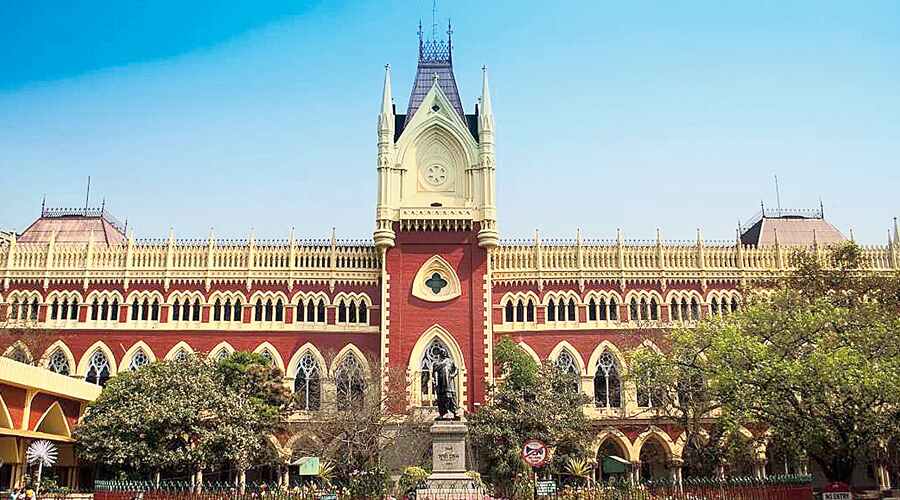The CBI on Monday informed a five-judge bench of Calcutta High Court that the agency had moved the Supreme Court and sought an adjournment of a hearing on the bail pleas of four politicians arrested in connection with the Narada probe.
But the high court decided to hear the case and later postponed the hearing till Wednesday to settle some legal issues that cropped up during the two-hour proceedings.
The matter before the five-judge bench were the bail pleas of ministers Firhad Hakim and Subrata Mukherjee, legislator Madan Mitra and former Calcutta mayor Sovan Chatterjee.
With the court deferring the hearing till Wednesday, the four politicians will have to remain under house arrest till a decision is announced.
Following a difference of opinion between acting Chief Justice Rajesh Bindal and Justice Arijit Banerjee, the high court had on Friday ordered the house arrest of the four politicians and formed a five-judge special bench to hear their bail pleas.
Even after the CBI on Monday informed the special bench that it had moved the Supreme Court against Friday’s order, the special bench decided to hear the case as the apex court was yet to hear the CBI’s plea.
“After hearing the case for over two hours, questions arose on whether the high court could hear the bail pleas of the accused at a time there is also a case because the CBI has sought a shift in the trial venue of the Narada case from the lower court to the high court and hence the hearing was adjourned till Wednesday,” said a high court source.
On May 17, after the four politicians had been granted bail by a CBI court, the central agency had moved the high court seeking the transfer of the matter from the trial court to the high court by citing Section 407 of the CrPC, which deals with the power of the high court to transfer cases and appeals.
In the said petition, the investigating agency, however, did not seek any stay on the orders of bail to the accused granted by the CBI court.
During the hearing of the case before the special bench on Monday, Tushar Mehta, the CBI counsel and solicitor-general of India, said Section 407 of the CrPC had enough scope to allow the high court to settle even bail disputes connected to the case.
“Since the state administration had interfered in the activities of the judiciary by using muscle power, the high court had the right to scan the bail order of the accused leaders, which was awarded by the trial court in haste,” the solicitor-general said.
To settle the legal question raised by the CBI counsel, the special bench decided to adjourn the hearing for elaborate discussions on the issue on May 26.
During the hearing of the case before the special bench, advocate Abhishek Manu Singhvi, the counsel appearing for the accused, said the CBI’s attempt at moving from one court to another was “unfortunate”. “An investigating agency was never seen playing such a role in history,” Singhvi said.
In reply, the CBI counsel said: “The state government was also never seen showing its muscle power vis a vis a case previously.”
While talking about the CBI’s decision of moving from one court to another in this particular case, legal experts said the central agency was using the strategy of “forum shopping” to fulfil its objective of shifting the venue of the Narada case to any other state of their choice.
“It’s a clear case of forum shopping.… High Courts do not have the jurisdiction to transfer the venue of trial to any other court. For transferring the venue, the investigating agency would have to move the Supreme Court. That’s why it moved Calcutta High Court so that any order passed by it can be challenged before the Supreme Court,” said advocate Jayanta Narayan Chatterjee, who practises criminal law in Calcutta High Court.











